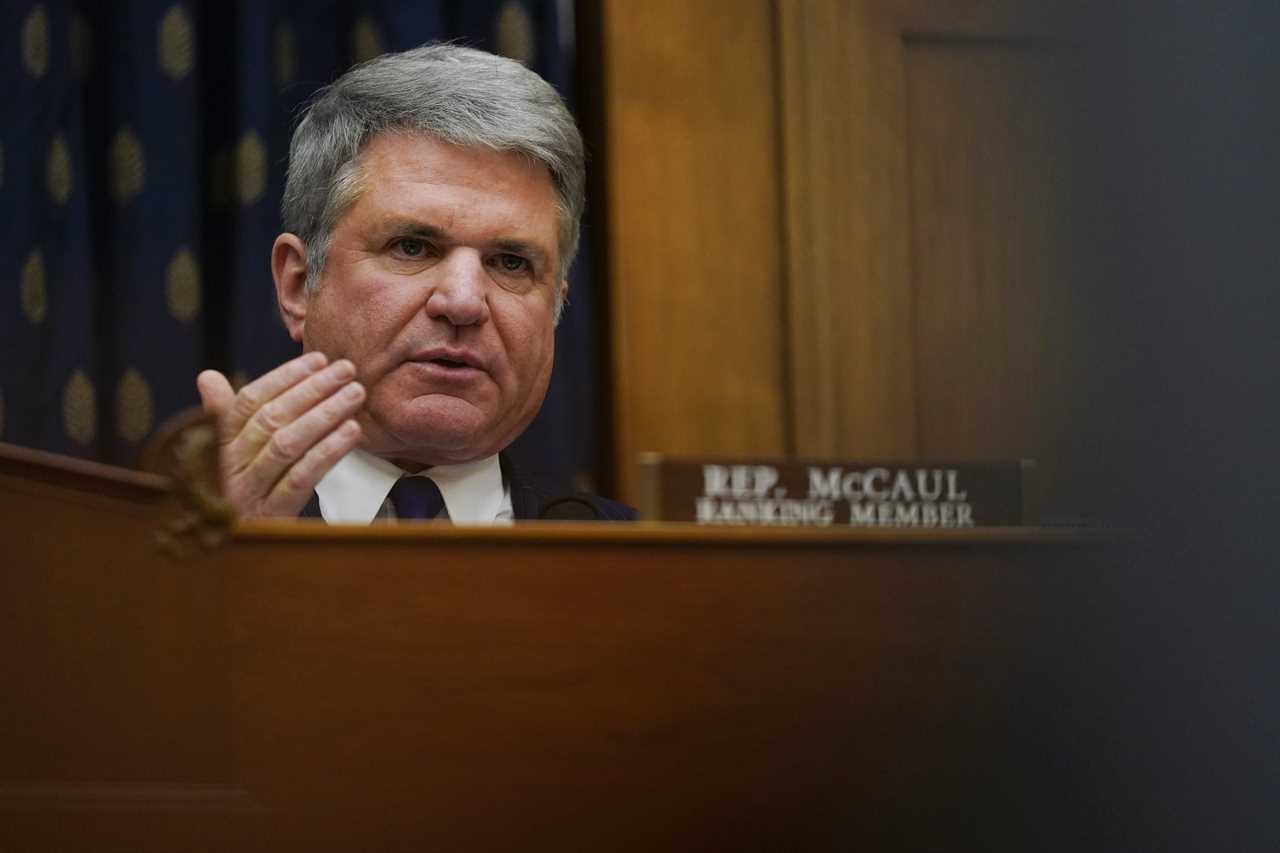
The uproar over a suspected Chinese spy balloon — and three other unidentified flying objects — has brought an abrupt halt to Beijing’s nascent Washington charm offensive, emboldening Biden administration officials and lawmakers looking to crack down on Beijing’s economy.
After months of relative quiet in a trade conflict that’s raged since the Trump era, the Biden administration is slapping new sanctions on Chinese firms and congressional lawmakers are using the debacle to add momentum to their campaign for new rules on American investments in the Chinese economy.
The confrontational turn shows the fragility of any efforts to repair the economic relationship between Beijing and Washington at a time when distrust between the global superpowers is at a 50-year high.
“This intrusion was completely unacceptable and has got a lot of people asking a lot of questions,” Rep. Bill Huizenga, a senior member on the House Financial Services Committee, said about the initial balloon incursion. “I don’t see [our approach] becoming less hawkish. If anything it’ll stay the same, but likely get more hawkish.”
The House Financial Services Committee is now kicking off work on legislation targeting American firms operating in China — rules they hope will prevent U.S. banks from funding technologies that can end up in Chinese military or surveillance applications, like the balloon and other spy devices. The Biden administration is also readying its own action on the same front, with a new executive order expected next month, following its decision Friday to blacklist six Chinese aerospace firms allegedly associated with surveillance balloon development.
The reopening of hostilities in the trans-Pacific trade war is a shift from the implicit ceasefire that President Joe Biden struck with Chinese President Xi Jinping in Bali last November, when they pledged to put a “floor” on the deteriorating relationship on the sidelines of the G-20 summit.
Since that meeting, the U.S. had refrained from issuing trade penalties that could inflame Beijing, like sanctioning new military-aligned firms, and planned high-level visits for the nations’ top economic and diplomatic officials. Meanwhile, Chinese officials mounted a diplomatic campaign in Washington to reset the two countries’ commercial relationship.
But in the time it took the Chinese balloon to travel from Montana to South Carolina, U.S. officials say that any nascent goodwill has evaporated, and Washington is again revving up its campaign to hem in the Chinese economy.
“It’s literally got the entire country lit up now,” said House Foreign Affairs Committee Chair Michael McCaul, who authored a House resolution this week condemning the balloon that passed unanimously. “I think it did tremendous damage … to the relationship. If that was their goal, fine, but I don’t think that was in their best interest.”
Whether by design or accident, the balloon incident has dealt a critical blow to Beijing’s recent efforts to improve the trade relationship as its economy emerges from the coronavirus pandemic. Since late last year, Communist Party officials have blanketed Washington with diplomatic overtures, offering lawmakers visits to China and policy briefings on contentious issues like Chinese-owned social media platform TikTok’s operations in the U.S.
The Chinese sought openings with even some of the most hawkish members of Congress, including McCaul and Rep. Andy Barr (R-Ky.), who both confirmed in interviews that China’s ambassador to the U.S. contacted them late last year.
“They made a lot of charming overtures for me to come to China,” said McCaul, who said the Israeli ambassador facilitated an introduction to China’s then-ambassador at a social function in November. “And the TikTok issue, they want to talk to me about this new arrangement they have,” he said, referring to a proposed national security compromise between the firm and the Biden administration.
Barr said his contact with then-ambassador Qin Gang — now China’s Foreign Minister — was more contentious.
“Our conversations should be diplomatic, and that was not,” he said, declining to elaborate. “We just have a lot of reasons to be upset with the Chinese right now. They shouldn’t be spying on the American people.”
But while Washington is by and large united in its desire to crack down on China’s high-tech economy, policymakers are increasingly divided over how to do it.

For over a year, China hawks in Congress have pushed legislation that would set up a new federal oversight body to review — and potentially deny — American investments in key Chinese industries that could affect U.S. national security. Sponsors of that bill, the National Critical Capabilities Defense Act, say they will soon reintroduce it in the new Congress. The Biden administration is also considering restricting U.S. investments in those sectors via an executive order that has been in the works since last year.
But some House Republicans oppose those efforts, arguing they are a dangerous expansion of the federal government’s power over business, even as they insist they want to penalize Beijing’s high-tech industries.
Those lawmakers presented their case at a Financial Services hearing on China this week, led by committee Chair Patrick McHenry (R-N.C.).
“For the U.S. to compete with China, we cannot become more like the Chinese Communist Party,” McHenry said. “We need to carefully evaluate if a policy proposal could jeopardize America’s ability to innovate, grow, and allocate capital, or if it would cause allies to question our commitment to free people and free markets.”
Instead of a government review board, members of the committee offered up a bill from Barr that would expand the federal government’s authority to sanction or blacklist Chinese firms connected to the country’s military. Such an approach would give more certainty to financial institutions about where they could invest, Barr said, rather than leaving their fate up to an oversight committee.
The debate on stricter oversight of U.S. investment in China is still in its early stages on Capitol Hill. The Senate Banking Committee is set to take up the issue in a hearing at the end of the month, likely setting up months of debate and negotiation over how to shape final legislation.
The debate is also continuing to play out in the White House, where the push by national security adviser Jake Sullivan and others to tighten oversight of U.S. investments in China has been met by resistance by economic officials in the Treasury and Commerce Departments. Congressional leadership has pushed the Biden administration since last year to quickly issue that order, and China hawks are hopeful the balloon incident will spur them to action.
“They said, originally, March,” Casey said. “I hope they can keep to that. We’re pushing them.”
----------------------------------------
By: Gavin Bade
Title: Balloon furor deflates China’s commercial charm offensive
Sourced From: www.politico.com/news/2023/02/14/balloon-china-washington-trade-00082640
Published Date: Tue, 14 Feb 2023 04:30:00 EST
Did you miss our previous article...
https://consumernewsnetwork.com/politics-us/elizabeth-warren-creates-anticrypto-alliance






